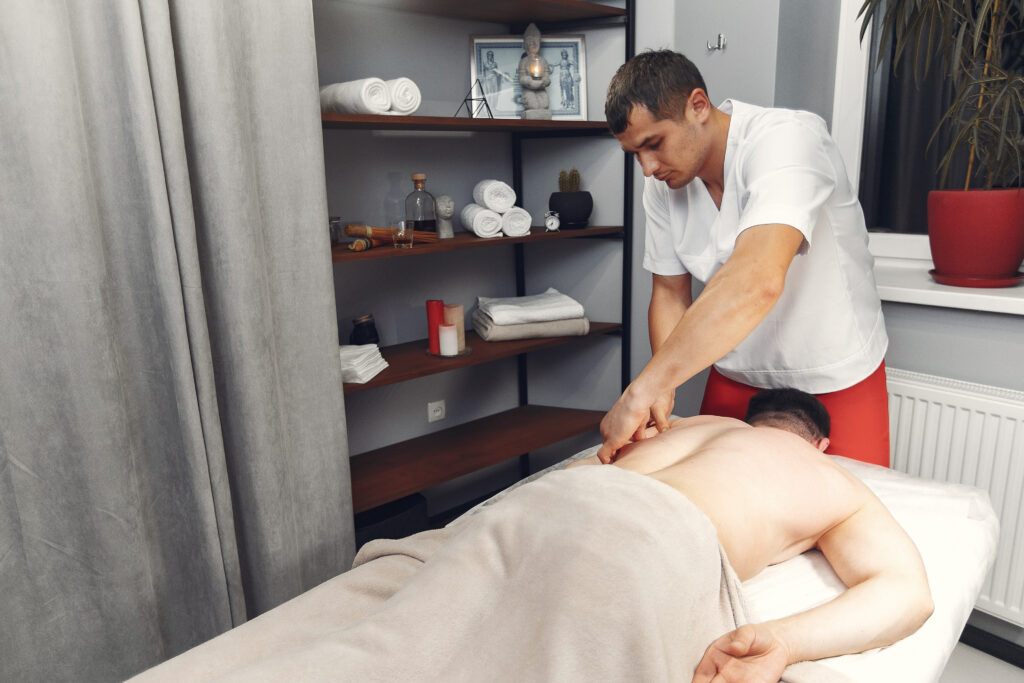Embracing regular massage therapy can be a simple yet transformative way to prioritize your health. Not only does consistent massage ease away tension and physical discomfort, but it also addresses underlying stress and supports holistic well-being. Today’s hectic routines often leave us feeling frazzled, and chronic stress can harm virtually every system in the body. Carving out time for massage isn’t just a luxury; it’s a mindful act of self-compassion and preventive healthcare. Whether you’re seeking relief from chronic pain, hoping to improve your quality of life, or looking for a moment of tranquility, massage therapy is a valuable investment in self-care. For those interested in expert care, Elevate Massage provides tailored massage experiences, ensuring all sessions are customized to suit a variety of wellness needs and personal preferences.
Integrating massage into your self-care routine doesn’t just provide temporary relief—it can lead to lasting improvements in your physical, emotional, and mental health. Over time, regular sessions help strengthen the body’s immune system against stressors, revitalize the immune system, and promote better sleep, flexibility, and posture. Scientific evidence suggests that the cumulative effect of massage extends well beyond the immediate hour on the table; it helps to recalibrate your nervous system, improve blood flow, and promote the release of endorphins, all of which foster a deeper sense of balance and vitality. The compounded benefits of massage promote a sustainable, balanced lifestyle, helping you show up as your best self every day, ready to face life’s challenges with renewed energy and optimism.
Stress Reduction and Mental Health
In today’s fast-paced world, stress and anxiety are all too common, often taking a noticeable toll on our health over time. Massage therapy is widely recognized for its ability to calm the mind and alleviate mental strains. During a massage session, the rhythmic pressure and soothing environment communicate safety to your nervous system, naturally reducing the body’s production of cortisol (the “stress hormone”). This shift triggers a relaxation response that allows your mind to unwind, leading to an enhanced mood, greater mental clarity, and an overall sense of emotional stability. Research from the Mayo Clinic Health System suggests that massage efficacy is not only in lowering stress levels but also in supporting more robust emotional health, including reduced symptoms of depression and anxiety. Regular exposure to these calming benefits enables you to develop resilience and healthier coping strategies for everyday pressures, helping you feel more grounded in the face of life’s demands.
Pain Management and Physical Recovery
Many people turn to massage therapy to find relief from chronic pain or injury-related discomfort. Techniques such as deep tissue massage, trigger point therapy, and myofascial release are especially effective at loosening muscle knots, reducing stiffness, and breaking up adhesions that restrict movement. Through regular sessions, the mechanical action of massage enhances circulation, delivering fresh oxygen and nutrients to tissues while facilitating the removal of metabolic waste byproducts. This improved circulation accelerates the healing process, making massage a valuable tool for those recovering from sports injuries, repetitive strain, or even postural imbalances caused by desk jobs and sedentary lifestyles. According to the National University of Health Sciences, ongoing bodywork can significantly reduce persistent pain, improve range of motion, and allow individuals to move with greater ease and confidence.
Immune System Boost
Regular massage therapy does more than relax your muscles—it can also give your immune system a much-needed lift. By manually stimulating the lymphatic system, massage helps flush toxins, reduce inflammation, and support the optimal functioning of your internal defense mechanisms. This process enhances the removal of cellular waste and supports the healthy flow of lymph, a fluid integral to immune surveillance. Studies have shown that individuals who receive regular massages demonstrate increased activity in natural killer cells, a vital type of white blood cell that protects the body from infections, viruses, and certain forms of cancer. When your immune system is strong and resilient, your risk of getting sick or feeling run down is minimized, especially during cold and flu season or times of increased stress. Making massage a regular part of your wellness routine becomes a proactive approach to maintaining vibrant health and longevity.
Improved Sleep Quality
Sleep is essential for the body’s ability to heal and rejuvenate, yet many struggle to fall or stay asleep due to pressure, anxiety, or chronic discomfort. If sleep eludes you, regular massage therapy can serve as a natural remedy for sleepless nights. By activating the parasympathetic nervous system, massage promotes deep relaxation, slows the heart rate, and decreases the production of stress hormones—all of which are essential for falling and staying asleep. As a result, clients often experience more restorative sleep and report feeling more rested and energetic the next day. Enhanced sleep quality leads to better energy, sharper cognitive function, and a more balanced mood throughout the day. Resources from the Sleep Foundation detail how the calming effects of touch therapy can help regulate sleep cycles and address issues like insomnia or restlessness—making massage a truly holistic approach to sleep support.
Enhanced Flexibility and Posture
A sedentary lifestyle, frequent device use, or repetitive tasks can significantly impact posture and reduce flexibility, often leading to chronic aches and an increased risk of injury. Massage therapy counteracts these effects by loosening tense muscles, extending connective tissues, and improving joint mobility. With regular sessions, the softening of muscle groups and targeted stretching return your body to better alignment, correcting muscular imbalances that make it difficult to stand or sit correctly. This realignment reduces chronic strain on areas such as the neck, shoulders, and lower back—regions most affected by improper posture. Over time, consistent massage promotes graceful movement, enhances athletic performance, and leads to a noticeable reduction in the everyday aches associated with poor posture. According to the Cleveland Clinic, integrating massage therapy into your routine is a proactive way to prevent injuries and sustain your range of motion, allowing you to feel and move better, longer.
Conclusion
Incorporating regular massage therapy into your wellness regimen offers a holistic approach to achieving better health and vitality. Its benefits touch every facet of life—reducing stress, managing pain, boosting immunity, optimizing sleep, and encouraging flexible, pain-free movement. By making massage therapy a consistent and intentional part of your body’s self-care, you support your body’s innate healing capabilities and unlock a greater sense of well-being that radiates outward into every day. Taking time to nurture both body and mind is a powerful step forward in your lifelong commitment to self-care and everyday wellness.







